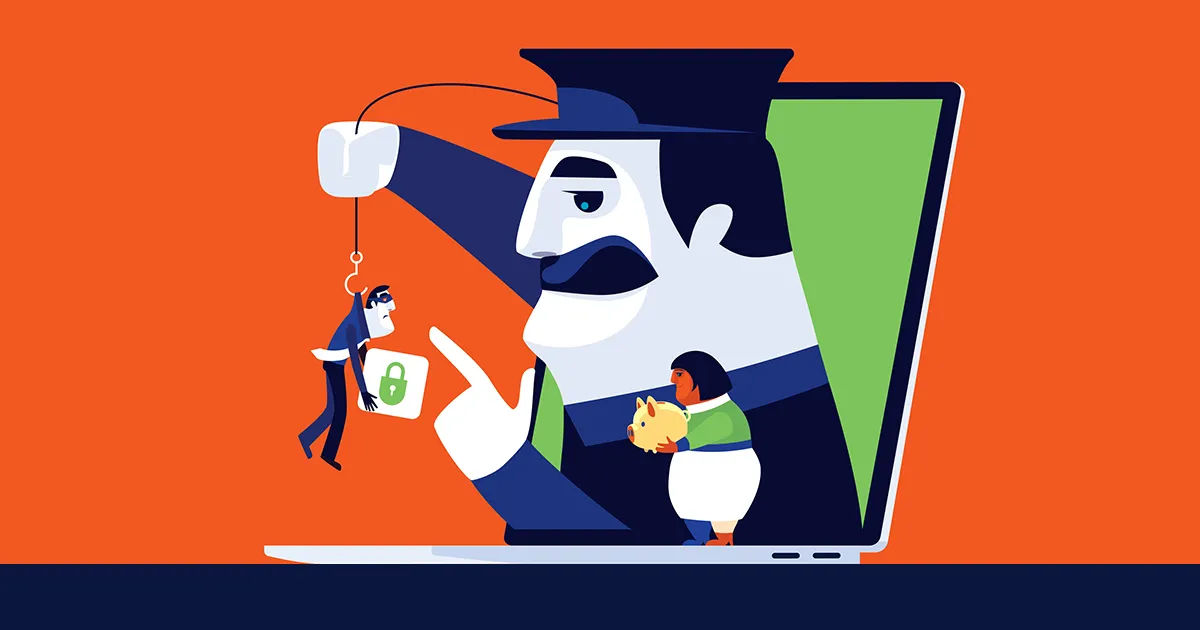Scam Alert! 10 Ways to Protect Against Online and Mobile Scams

You’ve probably received a text promising millions, an email from a long-lost relative with a fortune to share, or a call from a ‘friendly’ tech support person that claims your computer has been compromised. Let’s face it, scams are as common as pigeons in a city park.
According to the National Scam Response Centre (NSRC), more than RM1.34 billion was lost to scams in 2023, with 33,235 cases reported through the NSRC 997 hotline. Scams included telecommunication scams, financial fraud, love scams, ecommerce, fake loans, and fake investments.
But hey don’t let these ruin your day. Here’s a survival guide to navigating the luscious digital jungle without falling prey to online and mobile predators.
1. Be Wary of Out-of-This-World Offers
I’m sure you’ve heard of the saying, if it sounds too good to be true, it probably is. Those emails promising you millions of dollars, free vacations, or a miracle risk-free new investment are almost always scams. Don’t fall for it. Remember, if it seems too good to be true, it’s likely a trap (and potentially an expensive one).
2. Protect Your Personal Information
Your personal information is like gold to scammers. Never share your IC number, bank account details, passcodes or OTP (one-time passwords) with anyone unless you’re absolutely certain of who you’re dealing with. And by “absolute certain,” we mean a trusted advisor, friend or family member, or a verified customer service representative.
3. Beware of Phishing Emails
Phishing emails are designed to trick you into clicking on malicious links or downloading harmful attachments. These emails often mimic legitimate companies or organisations. Always hover over links to reveal the full URL for verification before clicking and be cautious of any email that asks for personal information. It’s better to be safe than sorry, however seemingly trivial they may appear to be.
4. Strong Passwords Are Your Best Friends
As part of safeguarding your personal data and privacy, having a strong password is like a study lock on your digital door. Always use a mix of upper and lowercase letters, numbers and symbols. Avoid using the same password for all your logins and change your passwords, and change them often. And for extra security, consider using a password manager.
5. Update Your Software Regularly
Software updates often include security patches that protect against the latest threats. Keep your operating system, apps, and antivirus software up to date.
6. Don’t Click on Suspicious Links
Links can be tempting, especially if they promise juicy gossip, a mouthwatering deal, or pics of adorable kittens. But resist the urge to click on links from unknown senders or sources, or those that look suspicious. An email that’s from kimskardahshian123567089@gmail.com? Mark it as spam and don’t open it.
7. Be Careful on Social Media
Social media is a goldmine for scammers. Be cautious about accepting friend requests from strangers, and limit the amount of personal information you share publicly. Avoid responding to direct messages from people who are not on your friends list.
8. Secure Your Wi-Fi Network
A weak Wi-Fi network is an open invitation for hackers. Use a strong password and consider using a VPN for added protection.
9. Don’t Answer Calls from Unknown Numbers
If you don’t recognise the number, let it go to voicemail. Scammers often use spoofed numbers to make it appear like they’re calling from a legitimate business. Also take note that purported calls from government agencies and banks will never be made to you on weekends or after office hours, if at all. A call from the Inland Revenue Board (IRB) on a Saturday from a mobile number? Sus. Don’t pick up. Report and block the number. If you have a third-party caller ID application like Truecaller, that’s another level of verification and protection.
10. Report Scams
It’s important to be proactive. If you encounter a scam, report it to the appropriate authorities. This helps to protect others from falling victim to the same scam.
Telltale Signs of a Scam
So, how can you spot a scam a mile away? Here are some red flags to watch out for:
- Urgent requests for money or personal information: Scammers often create a sense of urgency to pressure you into acting quickly. But seriously, why is your best buddy asking to borrow money over FB Messenger; couldn’t he/she have called you directly?
- Poor grammar and spelling: Many scams are written by non-native English speakers, so watch out for grammatical and spelling errors.
- Generic greetings: Emails that start with “Dear customer” or “Dear friend” are most often scams.
- Suspicious links or attachments: Be wary of links that take you to unfamiliar websites or attachments with unexpected file types. Also, emails with links to change login details.
- Promises of easy money or unrealistic offers: As mentioned earlier, if it sounds too good to be true, it probably is.
Should You Respond to a Scam SMS or Email?
The short answer is no. Responding to a scam message can actually make you a bigger target. Scammers often use responses to confirm that your email address or phone number is active, which can lead to even more scams.
Who Can You Report Scammy Emails and Text Messages to?
You can report scam emails and text message to several organisations including:
- Maxis Online Safety Toolkit
- Your telco
- Malaysia’s Communications and Multimedia Commission
- National Scam Response Centre (NSRC) - Hotline: 997
- Commercial Crime Investigation Department (CCID)
Learn more about security and online safety via these channels:
Summary
The digital world is full of opportunities, but it’s also a place where unscrupulous parties lurk. By following these tips, you can significantly reduce your risk of falling victim to online or mobile phone scams. Remember, the best defence against scams is awareness and caution. Stay vigilant, trust your instincts, and stay safe out there!




